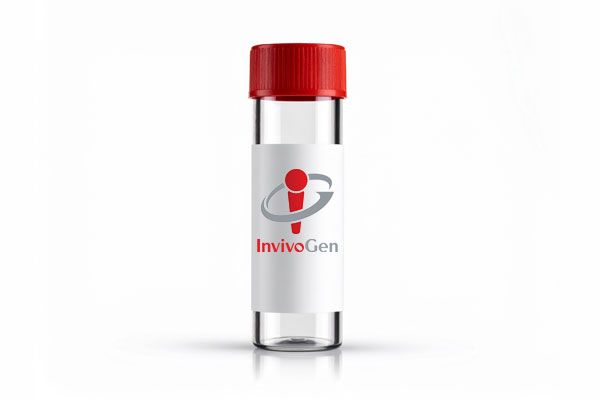Ganciclovir
-
Cat.code:
sud-gcv
- Documents
ABOUT
Prodrug for herpes simplex virus-thymidine 1 kinase (HSV1-tk)
Ganciclovir (GCV), a guanosine analog, is commonly used in molecular biology together with the negative selection marker herpes virus simplex 1 thymidine kinase (HSV1-TK) gene [1]. Numerous publications have cited its use in the selection against random recombination events when homologous recombination for the knockin or knockout of a gene is required [1-3]. In addition, reports have described the use of GCV in the selective removal of undifferentiated cells during in vitro differentiation of embryonic stem cells [4].
Mode of action:
Specifically, GCV is used to exert selective pressure on cells transfected with the “cell suicide gene” HSV1-tk. Normally, eukaryotic cells can survive in the presence of the non-toxic prodrug GCV. However, upon expression of HSV1-tk, GCV is converted to GCV-monophosphate by HSV1-TK and further phosphorylated to the diphosphate and triphosphate forms by host kinases. GCV-triphosphate, a lethal toxin, is incorporated into the DNA of replicating eukaryotic cells causing premature DNA chain termination and apoptosis [5].
Of note, GCV is approved by the FDA as an antiviral therapy against cytomegalovirus infections. GCV can be used to evaluate the sensitivity of viruses to antiviral treatments [7].
Key features of Ganciclovir:
- Prodrug for the HSV-tk/GCV selection system
- Inhibits DNA synthesis in HSV1-TK-expressing cells
- Each lot is highly pure (≥95%)
References:
1. Tamura R. et al., 2020. Gene therapy using neural stem/progenitor cells derived from human induced pluripotent stem cells: visualization of migration and bystander killing effect. Hum Gene Ther. 31:352-66.
2. Schwartz F. et al., 1991. A dominant positive and negative selectable gene for use in mammalian cells. PNAS 88(23):10416-20.
3. Converse A. et al., 2004. Counterselection and co-delivery of transposon and transposase functions for sleeping beauty-mediated transposition in cultured mammalian cells. Biosci Rep. 24:577-94.
4. Naujok O. et al., 1991. Selective removal of undifferentiated embryonic stem cells from differentiation cultures through HSV1 thymidine kinase and Ganciclovir treatment. Stem Cell Rev Rep. 6(3):450-61.
5. Moolten F., 1986. Tumor chemosensitivity conferred by inserted herpes thymidine kinase genes: paradigm for a prospective cancer control strategy. Cancer Res. 46:5276–5281.
6. Chang C.M. et al., 2013. In vitro treatment with Ganciclovir restores the functionality of exhausted T cells from cancer patients. Int. J. Gerontol. 7(3):171-6.
7. Oon C. et al., 1999. Hepatitis B virus variants with lamivudine-related mutations in the DNA polymerase and the ‘A’ epitope of the surface antigen are sensitive to ganciclovir. Antiviral Res. 41:113-8.
All products are for research use only, and not for human or veterinary use.
SPECIFICATIONS
Specifications
C9H13N5O4
CONTENTS
Contents
-
Product:Ganciclovir
-
Cat code:sud-gcv
-
Quantity:250 mg
Shipping & Storage
- Shipping method: Room temperature
- -20°C
- Avoid repeated freeze-thaw cycles
Storage:
Caution:
DOCUMENTS
Documents
Technical Data Sheet
Safety Data Sheet
Certificate of analysis
Need a CoA ?



